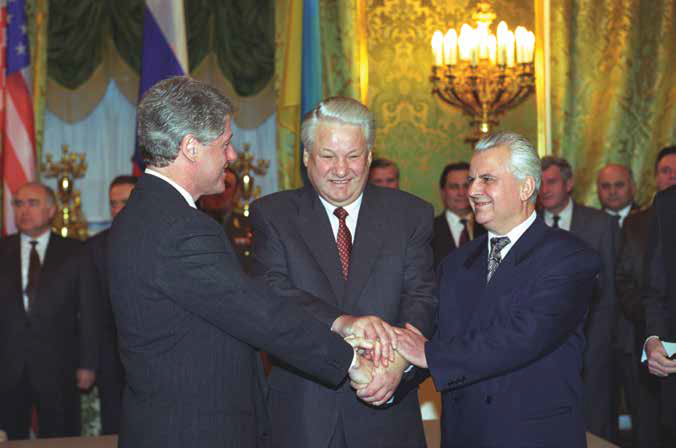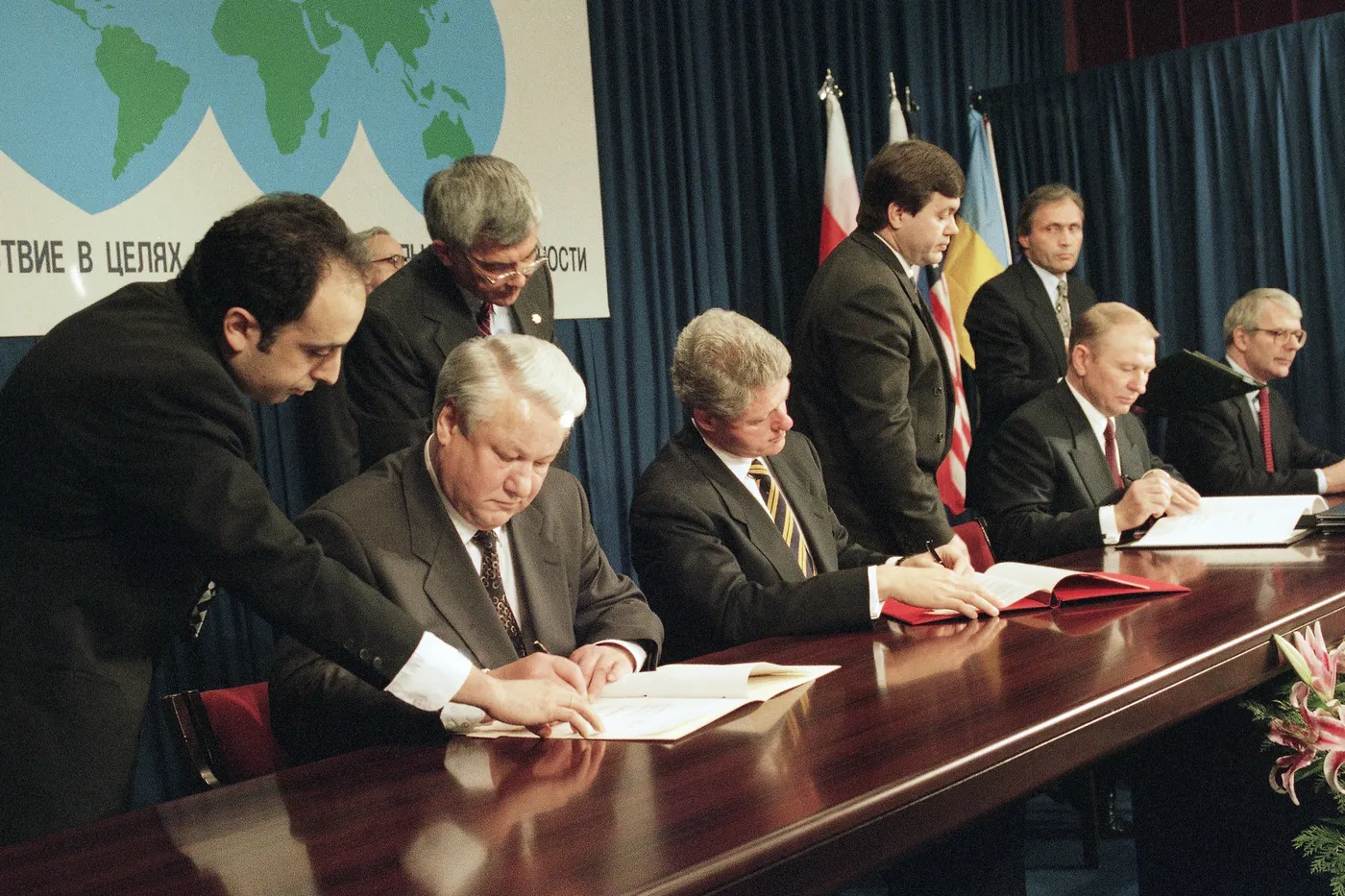30 years ago, on December 5, 1994, the United States, the United Kingdom and Russia signed the Budapest Memorandum, a crucial international agreement that promised security and stability in Europe.
At the end of the Cold War, Ukraine became independent in 1991 following the dissolution of the Soviet Union. At that time, the country held the third largest nuclear arsenal in the world, inherited from the Soviet Union. In order to strengthen global security and limit the proliferation of nuclear weapons, negotiations began to persuade Ukraine to give up these weapons.
It was in this context that Ukraine signed the Budapest Memorandum with the United States, the United Kingdom and Russia in December 1994, at a conference organized by the Organization for Security and Co-operation in Europe (OSCE).
Four key figures were present: Bill Clinton, President of the United States, representing the world power guaranteeing security and international order; Boris Yeltsin, President of Russia, direct heir to the Soviet Union, guarantor of the agreement but also recipient of Ukrainian nuclear weapons; John Major, Prime Minister of the United Kingdom, acting on behalf of the UK’s commitment to European peace and security; and Leonid Kuchma, President of Ukraine, signing the agreement in the hope of ensuring his country’s independence and security while renouncing a massive nuclear arsenal.

The emblematic image of the signing immortalizes the four leaders gathered to seal this historic commitment.
In exchange for destroying its nuclear arsenal and joining the Treaty on the Non-Proliferation of Nuclear Weapons (NPT), Ukraine receives security guarantees from the signatories. The signatories undertake to respect Ukraine’s independence, sovereignty and existing borders. They also promise not to use force or threats against the country, and not to use economic pressure to undermine its sovereignty. Finally, they pledge their support in the event of any threat or aggression involving nuclear weapons.
However, these commitments have been put to the test since 2014. Russia’s annexation of Crimea, followed by its role in the armed conflict in eastern Ukraine’s Donbass region, constitutes a flagrant violation of the memorandum. These events also reveal the limits of this agreement, which is based on political commitments rather than a legally binding framework. Without an implementation mechanism, the Western signatories limit themselves to economic sanctions and indirect support for Ukraine, leaving the country vulnerable to Russian aggression.
Today, 30 years after the signing of this agreement, the Budapest Memorandum remains a tragic reminder of the consequences of Russia’s non-adherence to its commitments to Ukraine’s sovereignty and territorial integrity. In 2014, Russia violated these principles by annexing Crimea, before escalating its aggression with a full-scale invasion in February 2022. This failure highlights not only the limits of the security guarantees offered at the time, but also the need for allies to stand firm on their commitments to protect states against future aggression.

